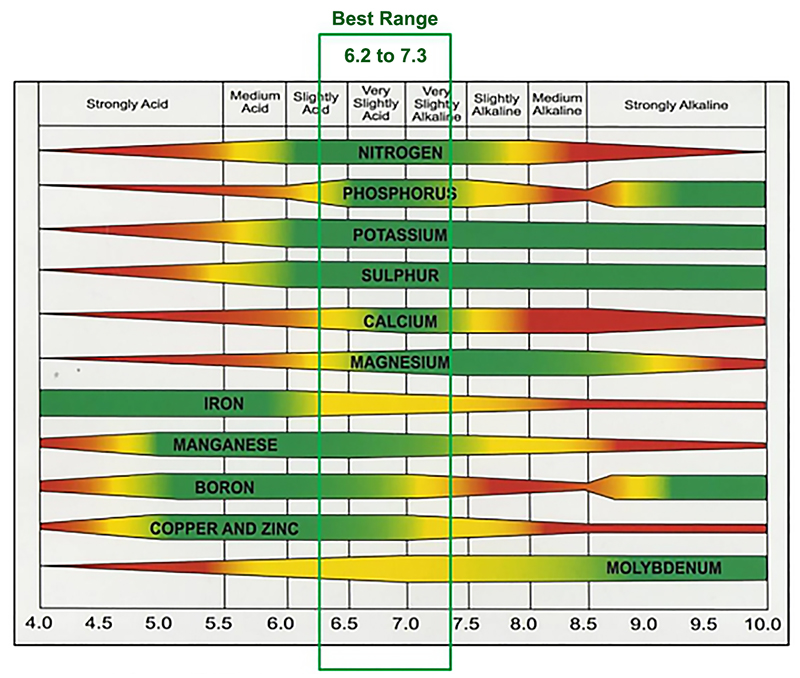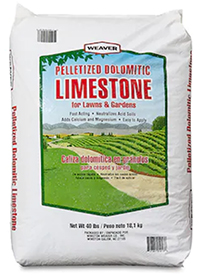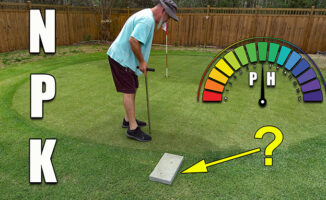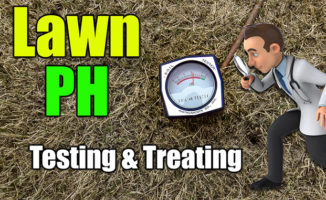Lawn Soil PH
Lawn soil PH testing and treatments are the one test that home owners should do every year. Your lawn soil PH can restrict the nutrients in your soil from being used by your grass, but there is a GOOD balance point you must understand. Product links in the video are below. If your lawn soil PH is low simply add lime. The rule of thumb is 100 pounds per 1000 sq feet will increase soil PH up ONE. (i.e. from 5.0 to 6.0) However, it’s best to do this in stages.
Clay soils require more lime than sandy soils. Start with 20 – 60 pounds per 1000 sq ft to make adjustments. Remember the GENERAL rule of thumb is 100 pounds to adjust one point.
Bermuda Grass Low PH is below 5.6 high is 7.0
Fescue grass Low PH is below 5.6 high is 7.0
St. Augustine Low PH is below 6.3 high is 7.8
ZOYSIA Low PH is below 5.5 high is 7.0
CENTIPEDE Low PH is below 4.3 high is 5.8
Bermuda Lawn PH Video
Lawn PH and products in the video.
The pelletized lime below will vary from store to store. Click to see if your Lowes has it.
Best soil PH (Roughly)
Zoysia 6.0 to 7.0
Bermuda 6.0 to 7.0 (Ideal is 6.3)
Fescue 6.5 to 7.0
Centipede 5.0 to 6.0
Plants experience pH through their roots. The substrate is a mixture of water with dissolved nutrients, air and solid particles. Root hairs experience any changes that occur in this environment, such as variations in moisture, air, or concentrations of solutes in the substrate solution. Roots are very sensitive to pH. The acidity or basicity of the substrate solution determines how well the roots can take up nutrients and how well the plant can grow.
Below… see how PH impacts the availability of nutrients to you lawn.

Lowering Soil pH
The lowering of soil pH is much more difficult and expensive than raising (alkalinity) soil pH. The sulfur used to lower soil pH is different from the plant nutrient sulfur. Elemental sulfur can be added to soils that are too alkaline for plants that prefer a more acidic pH. This is a yellow powder sometimes referred to as “flowers of sulfur” and is not nutritionally available to plants until it is oxidized by soil bacteria into the sulfate form. Do not confuse elemental sulfur with the sulfur contained in sulfates such as ammonium sulfate.
Lawn Soil PH Info
Soil pH affects turf grass health by influencing availability of plant nutrients and other elements, thatch decomposition, some turfgrass pests, and pesticide activity. Strongly acid soils (pH less than or equal to 5.5) may lead to deficiencies in calcium, magnesium, or phosphorus and increase availability of aluminum and manganese in amounts that may be toxic to turf grasses. Liming improves plant nutrient availability and reduces toxicity problems in acid soils.
Many beneficial soil microorganisms do not thrive in strongly acid soils. Some of these microorganisms break-down certain nitrogen fertilizers, thereby releasing the nitrogen for use by the turfgrass. Fertilizers containing nitrogen from ureaform, sulfur-coated urea, or natural organic sources are not effective unless certain microorganisms are present in sufficient quantities.
Soil microorganisms also aid in the decomposition of thatch and grass clippings. Thatch is the dense accumulation of organic material on the soil surface beneath the grass. A thatch layer restricts movement of air, water, nutrients, and pesticides into the soil. Soil pH in the range of 6.0 to 7.0 increases microbial activity and helps reduce thatch.
Acidic soils create conditions that favor growth of certain weed species. One of the most common and difficult-to-control weeds, moss, in more prevalent in moderately to strongly acidic soils than in neutral soils or slightly acid soils. Shepherds purse is a lawn weed that is a good indicator of moderately to strongly acidic soils. Although weeds cannot be controlled with lime applications, applying lime before soils become too acid is one means of preventing severe weed infestation.
Research has shown that the activity of some pesticides is influenced by soil pH. Strongly acid soils can reduce the effectiveness of some turfgrass herbicides and insecticides.
Sign Up for Email Alerts and Newsletters
Note: We do not sell or distribute any personal information.













